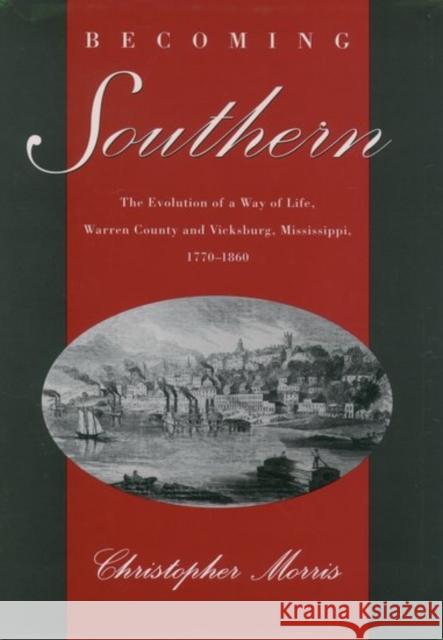Becoming Southern: The Evolution of a Way of Life, Warren County and Vicksburg, Mississippi, 1770-1860 » książka
Becoming Southern: The Evolution of a Way of Life, Warren County and Vicksburg, Mississippi, 1770-1860
ISBN-13: 9780195083668 / Angielski / Twarda / 1995 / 288 str.
Becoming Southern: The Evolution of a Way of Life, Warren County and Vicksburg, Mississippi, 1770-1860
ISBN-13: 9780195083668 / Angielski / Twarda / 1995 / 288 str.
(netto: 407,31 VAT: 5%)
Najniższa cena z 30 dni: 410,21
ok. 30 dni roboczych.
Darmowa dostawa!
Mississippi represented the Old South and all that it stood for perhaps more than any other state. Tracing its long process of economic, social, and cultural evolution, Christopher Morris takes a close look at one of those "typically" Southern communities, Jefferson Davis's Warren County, the northern-most of the five old river counties located in the state's southwestern corner. Drawing on wills, deeds, court records, as well as manuscript materials, Morris shows a transformation of a loosely knit, typically Western community of pioneer homesteaders into a distinctly Southern society based on plantation agriculture, slavery, and a patriarchal social order.
Farmers and herders first settled this "western" region around present-day Vicksburg At the turn of the nineteenth century, the wealthiest cattle herders began to acquire slaves and to plant cotton, hastening the demise of the pioneer economy. Gradually, all farmers began to produce for the market, which in turn drew them out of their neighborhoods and away from each other, breaking down local patterns of cooperation. Individuals learned to rely on extended kin-networks as a means of acquiring land and slaves, giving tremendous power to older men with legal control over family property. Relations between masters and slaves, husbands and wives, and planters and yeoman farmers changed with the emergence of the traditional patriarchy of the Old South. This transformation was the "southern" society Warren County's white residents defended in the Civil War.











